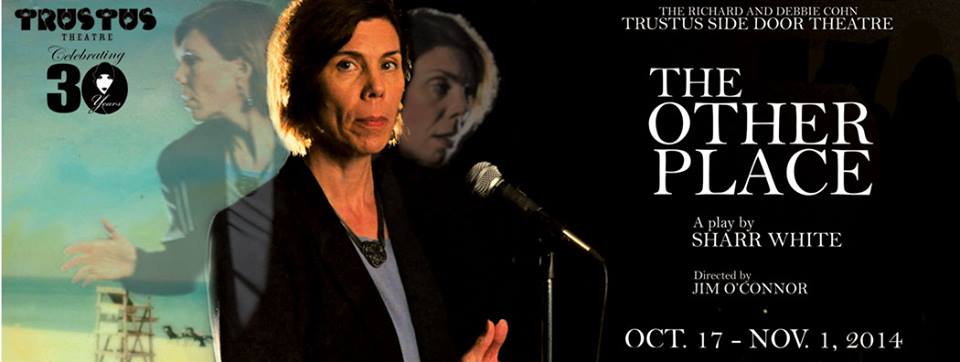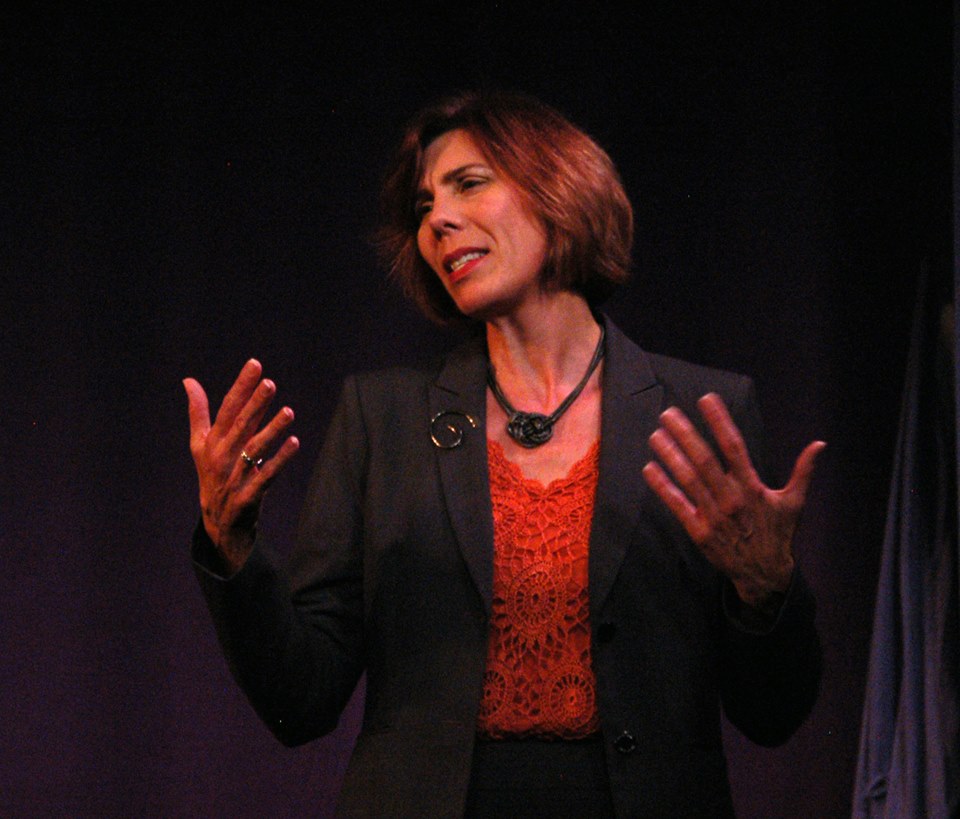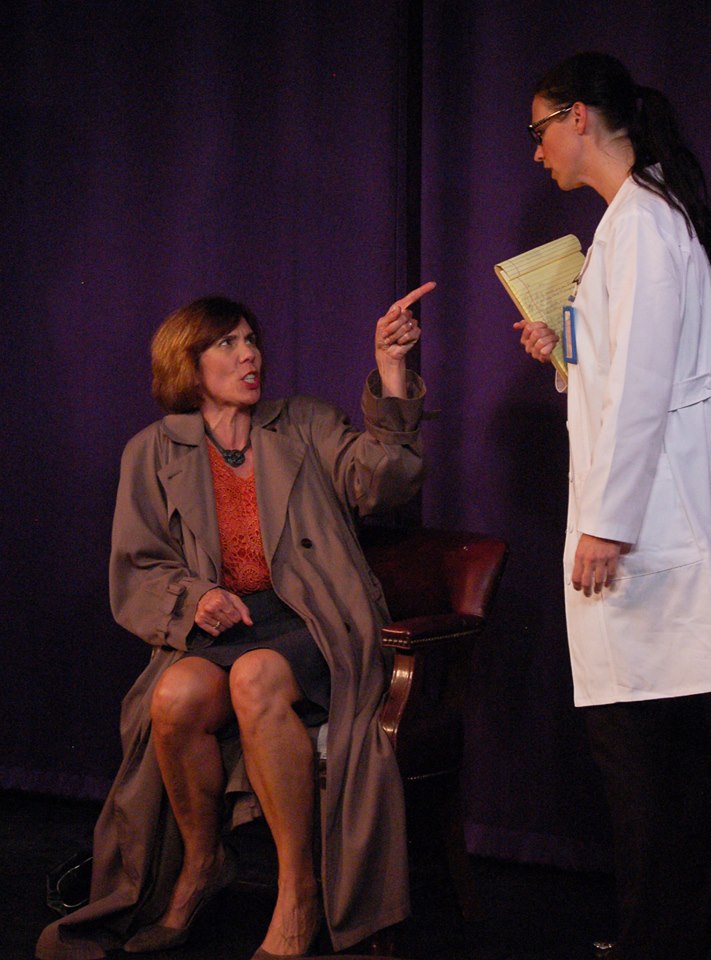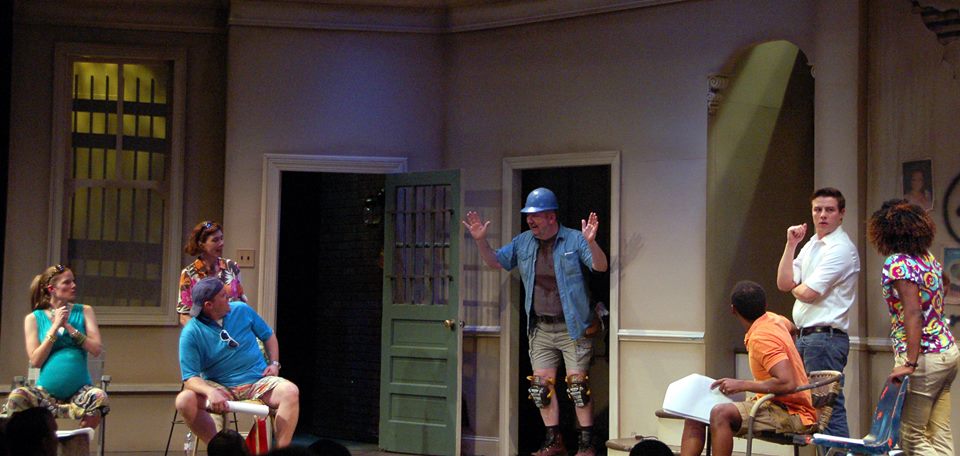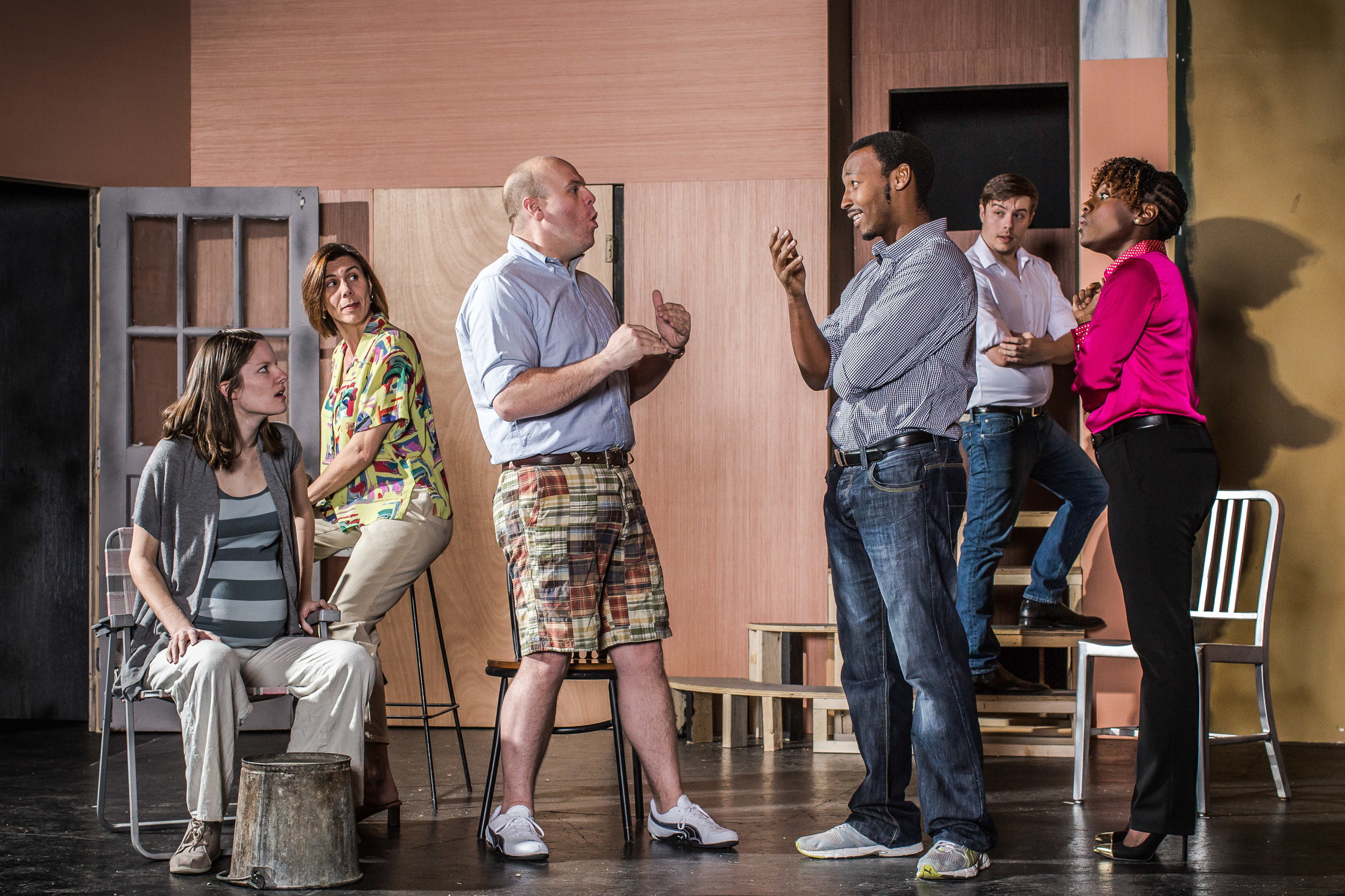“Your eyes can deceive you. Don’t trust them.”
- Ben (Obi-Wan) Kenobi, Star Wars
As is often the case in my experience with Trustus Theatre, I left Saturday night’s performance of Robert Schenkkan’sBuilding The Wall with a completely different story in mind. Just as their recent production of Barbecue had me humming a tune from Jekyll & Hyde: The Musical as I walked to my car, Building The Wall left me contemplating the Star Wars saga, specifically the themes of redemption and the oft-blurred lines between good and evil. This speaks well to the universality of the themes being examined this season at Trustus. If a new piece of work can activate the emotions and associations of the audience member, there’s an immediate sense of connection with the story. Not to get overly existential about it, but (with only a slight wink at the company’s name) it creates an immediate sense of trust in the script. Part of Trustus’ overall philosophy is that theatre is storytelling, and the story in Building The Wall is tightly and unapologetically told through two characters, each of whom is much more than our eyes reveal.
Staged in Trustus’ “Side Door” black box theatre, Building The Wall is a touch claustrophobic and uncomfortable, especially pre-show, when one of the play’s two characters sits and waits for someone to arrive, for something to happen, or perhaps simply passes the long, boring day of a prisoner in solitary confinement. Rather than being drawbacks, the forced intimacy and uncertainty about the silent, orange jumpsuit-clad man onstage establish an overcrowded jail atmosphere, enhanced by subtle sound effects that go from barely audible to noisy and back to near-silence in no particular order or pattern. Director Jim O’Connor puts a masterful touch on establishing place and theme well before the show begins, and his skill remains on display through the next 90 minutes, which leave the collectivemoral vision of the audience inside a fun-house mirror room.
The story is a simple one, but chilling in the way only a “this could actually happen” cautionary tale can be. Security guard Rick, played by J.B. Frush-Marple, is in prison in 2019, for crimes against humanity, and he is visited by a History Professor, Gloria (Lonetta Thompson), who seeks to understand his actions. Their initial meeting provides a stark contrast in visual types, with Frush-Marple bearing a strong resemblance to a taller, slightly leaner Hugh Laurie of House fame, complete with requisite stubble. He slouches and paces, as his emotions motivate him, and his jumpsuit immediately establishes “criminal.” Thompson, by contrast, is very put-together and professionally dressed. Given the sophistication of her vocabulary compared to Rick’s, there is clearly an education gap, but once again, the eyes (and ears) can deceive. Rick turns out to be far from the cornpone stereotype he first seems, and Gloria has much more to her than a “liberal female academic” stock character.
During the interview, Rick tells Gloria a story many of us fear is all too possible. Following a terrorist attack on Times Square, the president declares martial law, and begins rounding up immigrants from multiple countries for deportation. Not understanding the incredibly challenging logistics of such an operation, the government sets up holding stations…which become tent cities and worse. As this gruesome progression continues, Rick is all too aware of what’s happening, but needs his job for the insurance to care of his two children, at least one of whom has serious medical difficulties. Rick is a man caught in a place of terrible conflict. Rick speaks with sincerity about his black friends, and the audience actually feels a touch of sympathy for this most unsympathetic (at first glance) character. Even when pressed about Muslim friends, he admits to not having any, but says he’s “got no problem” with them, commenting that “they kinda keep to themselves”. Don’t misunderstand – Rick is still a shitkicker Texan, and unlikely to join the ACLU, but there’s no hate in him, and certainly not homicidal tendencies. The more we get to know him, the more we understand his plight, and feel a begrudging sympathy for this lower-middle-class Sad Sack who seems to have caught every bad break life could offer, including taking the fall for “just doing his job”. Frush-Marples manages to capture the conflict between what one would imagine to be prejudices learned from the cradle, and new perspective brought about through the horrors he has witnessed.
As Gloria, Thompson brings her signature coolness and poise to the role. One of the things I admire about her acting style is that she always seems to be the person in control of the situation, even when she isn’t. As mentioned above, Gloria’s use of academic terminology and an advanced vocabulary suggest a well-to-do, Ivy League type, yet she mentions her Ford Fairlane which has needed a full engine rebuild for at least a year, indicating that she is not as affluent as she may appear. This could easily have “knocked her down a peg or two,” but Thompson’s most effective combination of full acceptance of what we now know to be the life of a struggling teacher, combined with her utter calm (well, practically utter) at the raging, doubletalk, and moments of true sincerity from Rick establish her as the voice of calm and reason. It is Gloria with whom we naturally sympathize, yet even she loses her cool for a second or two here and there. Neither the demon nor the saint is fully without a drop of the other’s virtues, which kept bringing me back to the light and dark sides of The Force. I won’t beat the Star Wars comparison to death, but some strong thematic parallels are there.
The set is simple, slightly cramped, and a bit harshly lit, as would be the case in a prison interview room. Props to Brandon McIver and Frank Kiraly, respectively, for these nice touches of verisimilitude.
Building The Wall is a thought-provoking, frightening, and realistic play that will leave you thinking. Also, the entire show is performed in one act, so if you order an interval drink before the show, you’ll wind up hanging out and drinking it, chatting away to various production team members, while the company closes up shop for the night. I speak from experience.
When I was a kid, one of my favorite comic books was a Marvel title called What If…, an anthology series, which featured monthly stories on how changes to canonical history would have changed the outcome. (“What If Spider-Man Had Joined The Fantastic Four”, as I recall, had a fairly tragic ending, and the writers weren’t afraid to make a hypothetical turn out badly from time to time.) In many ways, Building The Wall is a real-life version of that comic book. This is a What If… that has the potential to come true. I responded to it both as a piece of political theatre and as a master class in textured acting from two talented, experienced, pros.
It isn’t a night full of laughs, nor should it be, but Building The Wall is an important work with a message that needs to be heard. Bravo to Trustus for once again being unafraid to address controversial and sometimes disturbing situations and themes. This is “Grown-Up Theatre” at its best.
-FLT3


